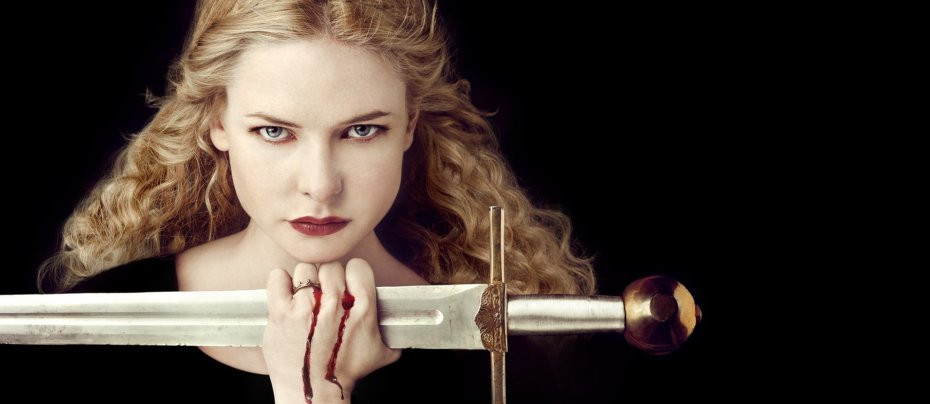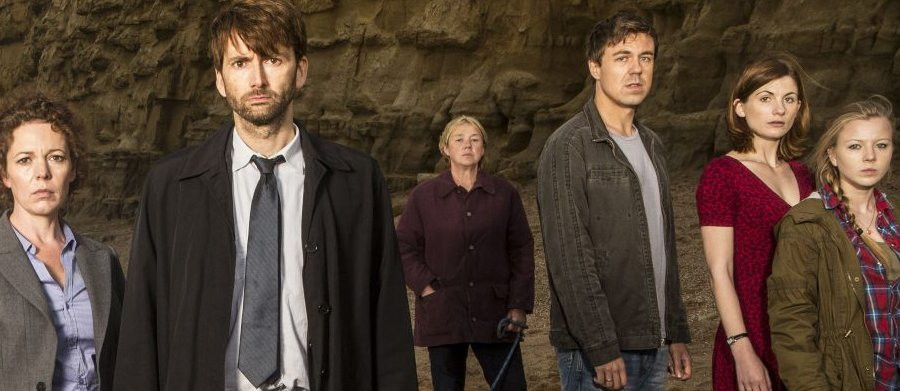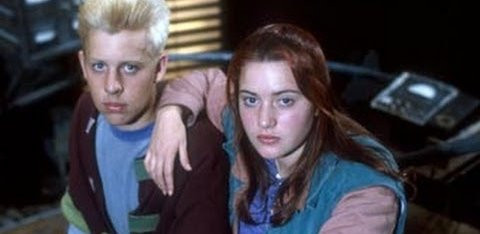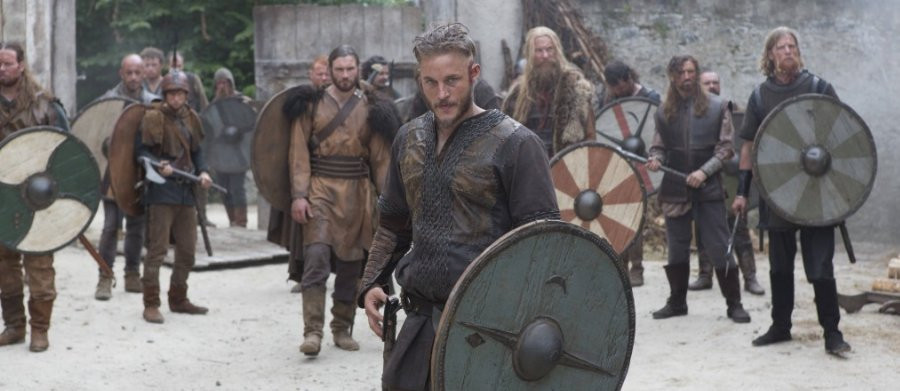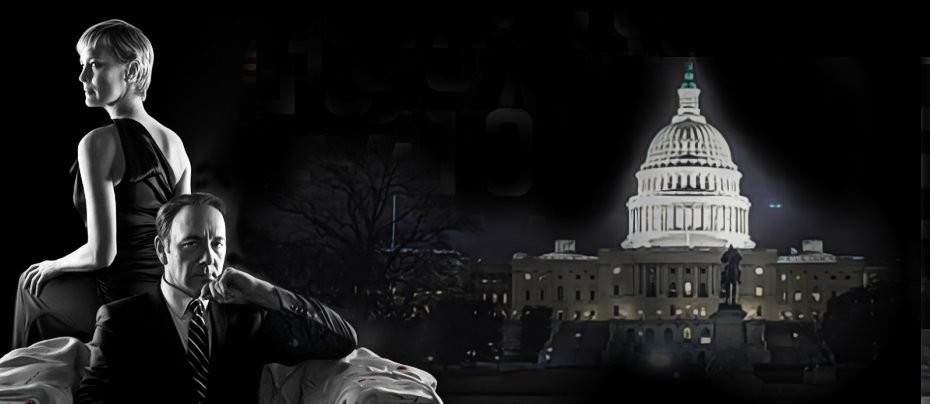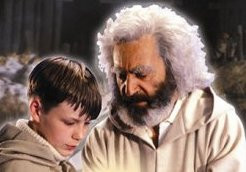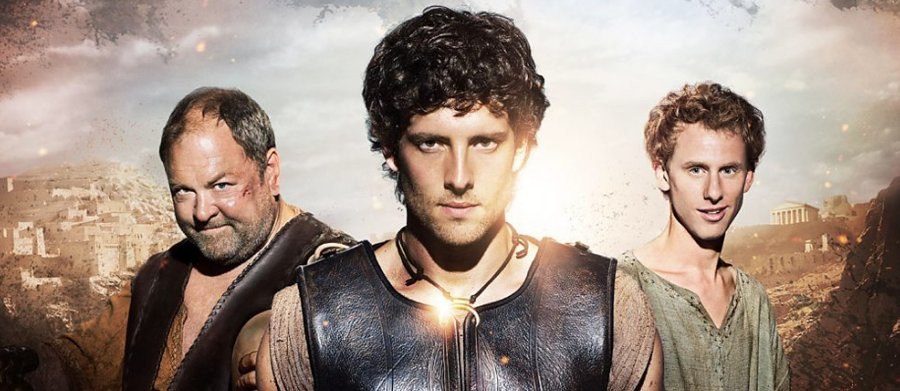
Atlantis
2013 - United KingdomReview: John Winterson Richards
The word "myth" is much misused - one might even say mythused. Sorry. Could not resist that. It will not happen again ...well, maybe once more.
It tends to be confused with "fable," a story that is deliberately made up. A myth is a story based on past events. As such, it might indeed be a fable, or it might be a retelling of historical facts. For example, for many years serious scholars, if they wanted to be considered serious scholars by other serious scholars, took it for granted that Troy was a fable - until a fairly disreputable archaeologist named Heinrich Schliemann went and dug the place up.
A myth is simply the way a story of the past has come down to us. The word myth is derived from the Greek for "telling." It is how the story is told. The story itself may lie on a spectrum of accuracy that has pure fable at one extreme and pure history at the other, with the exaggeration of real facts that is legend somewhere in the middle.
A myth originates in a past time about a previous time, and may pass through successive generations to be retold in the present. Each of those times has a different culture and adapts the story to suit its culture. The myth may serve a didactic or ideological purpose in each time, and that reflects how it is adapted. The way the story is told in our time says more about our time than it does about the time when it originated or the time it describes.
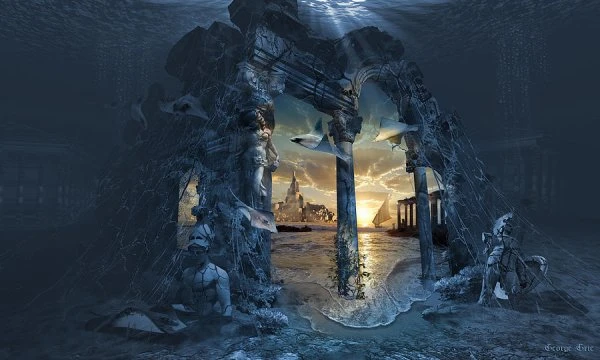
The Greek myth of Atlantis, the city that sank beneath the waves, is recorded in two of Plato's 'Dialogues' in the Fourth Century BC, but he claims it is an older story. Curiously, the same basic concept of a drowned civilisation, probably located in the Atlantic Ocean, is found in other ancient cultures. There is the Breton myth of Ys and the Irish myth of Hy-Brasil - note the similar names: Atlantis; Ys; Hy-Brasil. Another Celtic variation is the Welsh Cantref Gwaelod, the Lowland Hundred, flooded during a drunken feast - a rugby weekend, no doubt.
There might be historical basis for these myths. Maritime archaeology is discovering more and more ancient cities underwater, while our increased knowledge of changing sea levels and shifting continents confirms that vast areas of what was once land are now submerged, like Doggerland, the land bridge that once connected Britain and Europe. These might have prompted folk tales which were eventually conflated into Atlantis. Respectable scholarly opinion suggests that such folk tales might also have been influenced by the volcanic destruction of the island of Thera, modern Santorini.
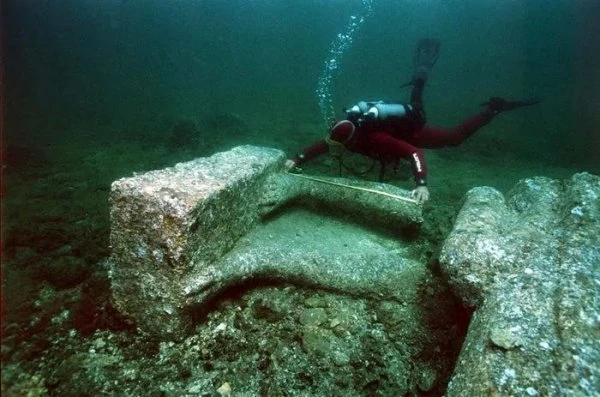
Mythology fits neatly in the television subgenre of "historical fantasy." As the name suggests, this is fantasy based on past events, as opposed to science fiction which is fantasy about a speculative future or contemporary fantasy involving magical realms parallel with our perceived reality. Our romantic notions of Camelot and Sherwood Forest belong in historical fantasy, even if they are based loosely on historical and geographic originals.
The historical fantasy subgenre was revived in the mid-1990s by the unexpected success of Hercules the Legendary Journeys and Xena Warrior Princess, American productions filmed in New Zealand. Old storybook favourites like Sinbad, Robin Hood, Merlin, and Camelot were soon dusted off and back on the small screen in a number of productions of varying quality.
Given its history, the BBC came surprisingly late to the party, and its first attempts at mimicking the slick American style, most notably Merlin and yet another revival of Robin Hood, were not particularly memorable, even if they had their good points. A case can be made that Atlantis is where the Beeb finally got historical fantasy right.
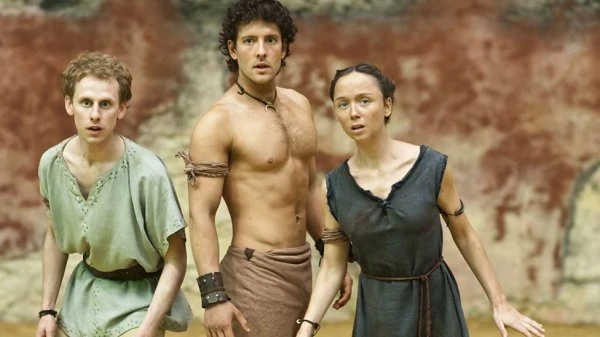
They went back to the Greek myths, but, following the principle that a myth is each culture's retelling of the old stories, played fast and loose with them. So their Jason (Jack Donnelly) became an accidental time traveller from the 21st Century who found himself in a Minoan civilisation that stole freely from different bits of the ancient tales.
This Jason becomes a contemporary of both King Minos (Alexander Siddig), transferred from Crete to the eponymous city, and of the much later historical mathematician and philosopher Pythagoras (Robert Emms). While this might have had proper Classicists tearing their hair out, it all worked rather well. It established the texture of a credible civilisation very quickly, giving Jason and his friends a solid backdrop for their adventures. If anything, the whole time traveller angle soon proved rather redundant and there was no serious exploration of the difficulties a modern man might have had adapting to life 3,000 years ago. If that was a missed opportunity, who cared? The storylines and characters were sufficiently interesting without it.
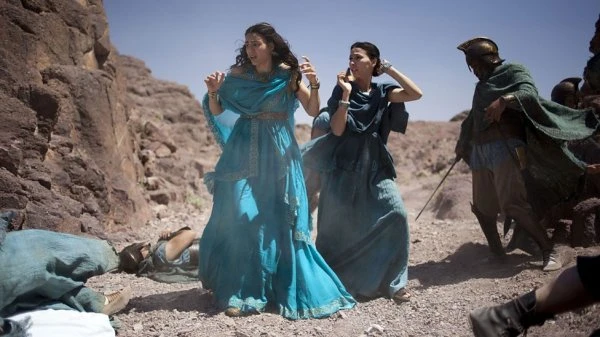
The whole look of the production is very easy on the eye. Given how well it evokes the Mediterranean, it is perhaps surprising to learn that it was based in Wales, helped enormously by some fine location work in Morocco. There was some first class expertise on the technical side blending the fruits of this photography with sets in a Chepstow warehouse and some clever visual effects to present a living, breathing civilisation.
There is also a great deal of skill in display - at least to those who look for what most are not meant to see - in making the budgets look a lot bigger than they were. Effects are a traditional weakness of the BBC, but those in Atlantis are comparable with the best of recent international epic productions. The Beeb seem to have learnt a lot in the process.
Above all there is good use of colour and light, especially in the first season. Modern directors need to be complimented on this because so many do not seem to grasp that bright and cheerful, with Mediterranean blue skies and seas, is far more attractive than dark and confusing.
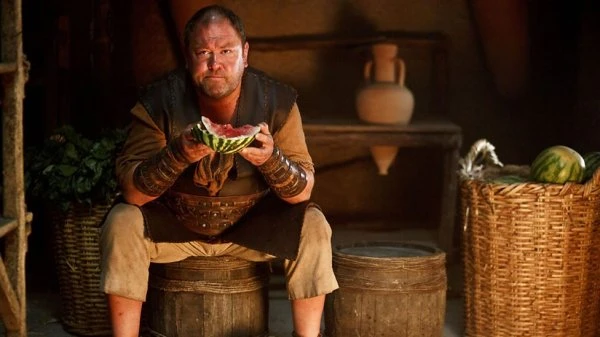
The one strength we can usually expect in a BBC production is good casting and Atlantis is no exception. Among the three leading characters, it is Mark Addy who makes the biggest impression as an unusual Hercules. Not long off Game of Thrones, the versatile character actor obviously realised that he needed to do something as far from his memorable Robert Baratheon as possible if he was not to end up typecast.
So his Hercules is not a legendary hero but the Minoan equivalent of the big guy down the pub telling anyone who will listen how he could have been a contender. Yet he has a sweet romantic side to him, and forms part of an entertaining trio with his housemates Jason and Pythagoras.
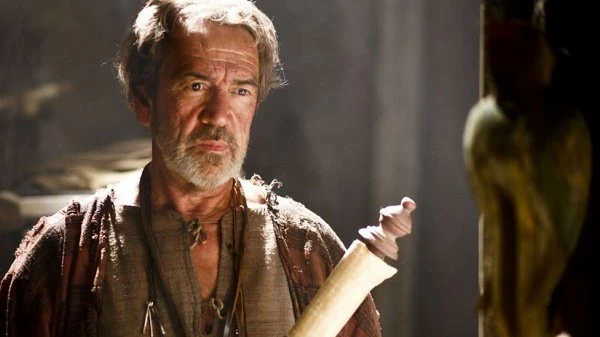
A talented supporting cast also includes Juliet Stevenson, Robert Lindsay, Ronald Pickup, Jemima Rooper, Vincent Regan (in a role similar to his part in 'Troy'), Hannah Arterton, Robert Pugh, Lorcan Cranitch, Ken Bones, Clive Standen, and John Hannah. Best of all is Sarah Parish, the acknowledged expert in characters with a lot going on behind stony exteriors - her Queen Pasiphae here being a prime example: a wonderfully hissable villain, she hides a big secret...
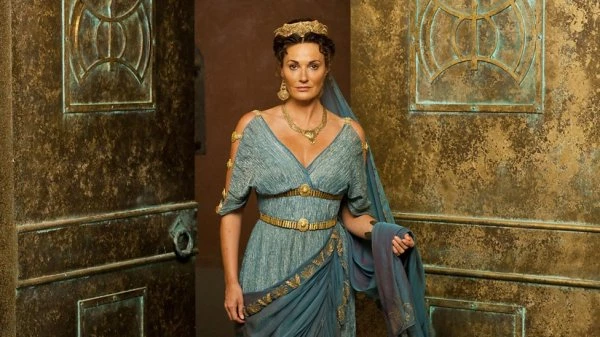
Yes, as Juliet Stevenson keeps reminding us, there is Destiny at work in all this. While much of the first season has our heroes larking about and trying to scratch a living - a sort of Minoan 'Friends' - more serious story arcs are developing gradually. The second season marks a definite change of tone. It is far more about war and high politics and epic tragedy. It ends with what can only be described as an extended trailer for what looks like a superb third season as Jason finally gets to do what he is famous for doing and sets off to quest for the Golden Fleece
...which never happens. The series was cancelled abruptly just as it was starting to get really interesting.
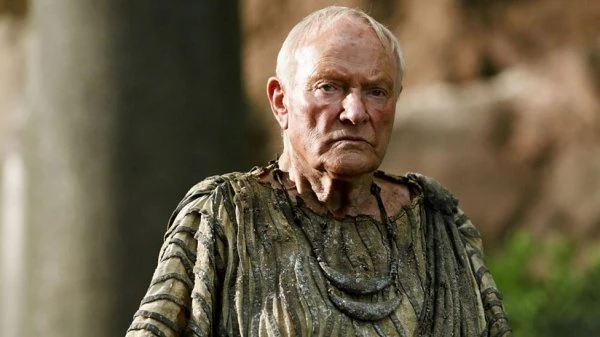
The ratings had been fairly solid right up until the moment the inexplicable decision was made to show the second season in two parts: there was a definite drop in viewers between the two showings. Even so, cancellation seemed a bad commercial move given the amount of money that had already been invested in the production - including some advance filming of season three, judging by the last few minutes of season two.
At the time the BBC said something about wanting to put resources into other projects, but we saw nothing of similar quality rising from the remains. Eventually the BBC returned to Greek mythology with the much inferior Troy Fall of a City, but that was a poor substitute.
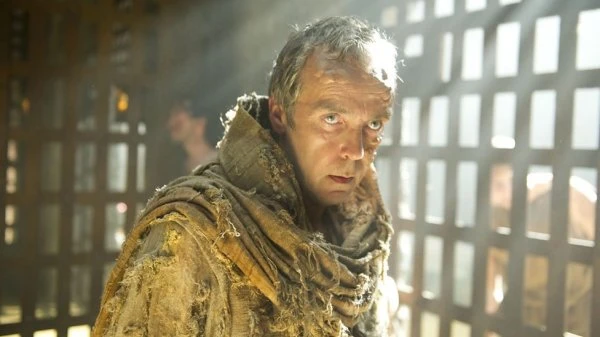
The tragedy of Atlantis was that its production showed the BBC developing an organisation and skills capable of dominating the growing world markets for historical fantasy, and, therefore, because such skills are transferable, both fantasy and historical drama as well - only to throw it all away.
It was a huge mythtake.
Reviewer: John Winterson Richards
John Winterson Richards is the author of the 'Xenophobe's Guide to the Welsh' and the 'Bluffer's Guide to Small Business,' both of which have been reprinted more than twenty times in English and translated into several other languages. He was editor of the latest Bluffer's Guide to Management and, as a freelance writer, has had over 500 commissioned articles published.
He
is also the author of How to Build Your Own Pyramid: A Practical Guide to
Organisational Structures' and co-author of 'The Context of Christ: the History
and Politics of Rome and Judea, 100 BC - 33 AD,' as well as the author of
several novels under the name Charles Cromwell, all of which can be downloaded
from Amazon.
John's Website can be found at John Winterson Richards
Published on February 21st, 2020. Written by John Winterson Richards for Television Heaven.


